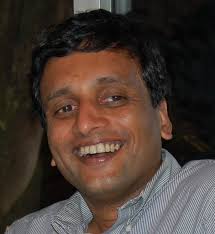Week 1
Module 1: Introduction
Module 2: Examples and motivation
Module 3: Examples and motivation
Module 4: Asymptotic complexity: informal concepts
Module 5: Asymptotic complexity: formal notation
Module 6: Asymptotic complexity: examples
Assignments MCQ/Fill in blanks (unique answer)
Week 2
Module 1: Searching in list: binary search
Module 2: Sorting: insertion sort
Module 3: Sorting: selection sort
Module 4: Sorting: merge sort
Module 5: Sorting: quicksort
Module 6: Sorting: stability and other issues
Assignments MCQ/Fill in blanks, programming assignment
Week 3
Module 1: Graphs: Motivation
Module 2: Graph exploration: BFS
Module 3: Graph exploration: DFS
Module 4: DFS numbering and applications
Module 5: Directed acyclic graphs
Module 6: Directed acyclic graphs
Assignments MCQ/Fill in blanks, programming assignment
Week 4
Module 1: Shortest paths: unweighted and weighted
Module 2: Single source shortest paths: Dijkstra
Module 3: Single source shortest paths: Dijkstra
Module 4: Minimum cost spanning trees: Prim’s algorithm
Module 5: Minimum cost spanning trees: Kruskal’s Algorithm
Module 6: Union-Find data structure
Assignments MCQ/Fill in blanks, programming assignment
Week 5
Module 1: Divide and conquer: counting inversions
Module 2: Divide and conquer: nearest pair of points
Module 3: Priority queues, heaps
Module 4: Priority queues, heaps
Module 5: Dijstra/Prims revisited using heaps
Module 6: Search Trees: Introduction
Assignments MCQ/Fill in blanks, programming assignment
Week 6
Module 1: Search Trees: Traversals, insertions, deletions
Module 2: Search Trees: Balancing
Module 3: Greedy : Interval scheduling
Module 4: Greedy : Proof strategies
Module 5: Greedy : Huffman coding
Module 6: Dynamic Programming: weighted interval scheduling
Assignments MCQ/Fill in blanks, programming assignment
Week 7
Module 1: Dynamic Programming: memoization
Module 2: Dynamic Programming: edit distance
Module 3: Dynamic Programming: longest ascending subsequence
Module 4: Dynamic Programming: matrix multiplication
Module 5: Dynamic Programming: shortest paths: Bellman Ford
Module 6: Dynamic Programming: shortest paths: Floyd Warshall
Assignments MCQ/Fill in blanks, programming assignment
Week 8
Module 1: Intractability: NP completeness
Module 2: Intractability: reductions
Module 3: Intractability: examples
Module 4: Intractability: more examples
Module 5: Misc topics
Module 6: Misc topics
Assignments MCQ/Fill in blanks

DOWNLOAD APP
FOLLOW US